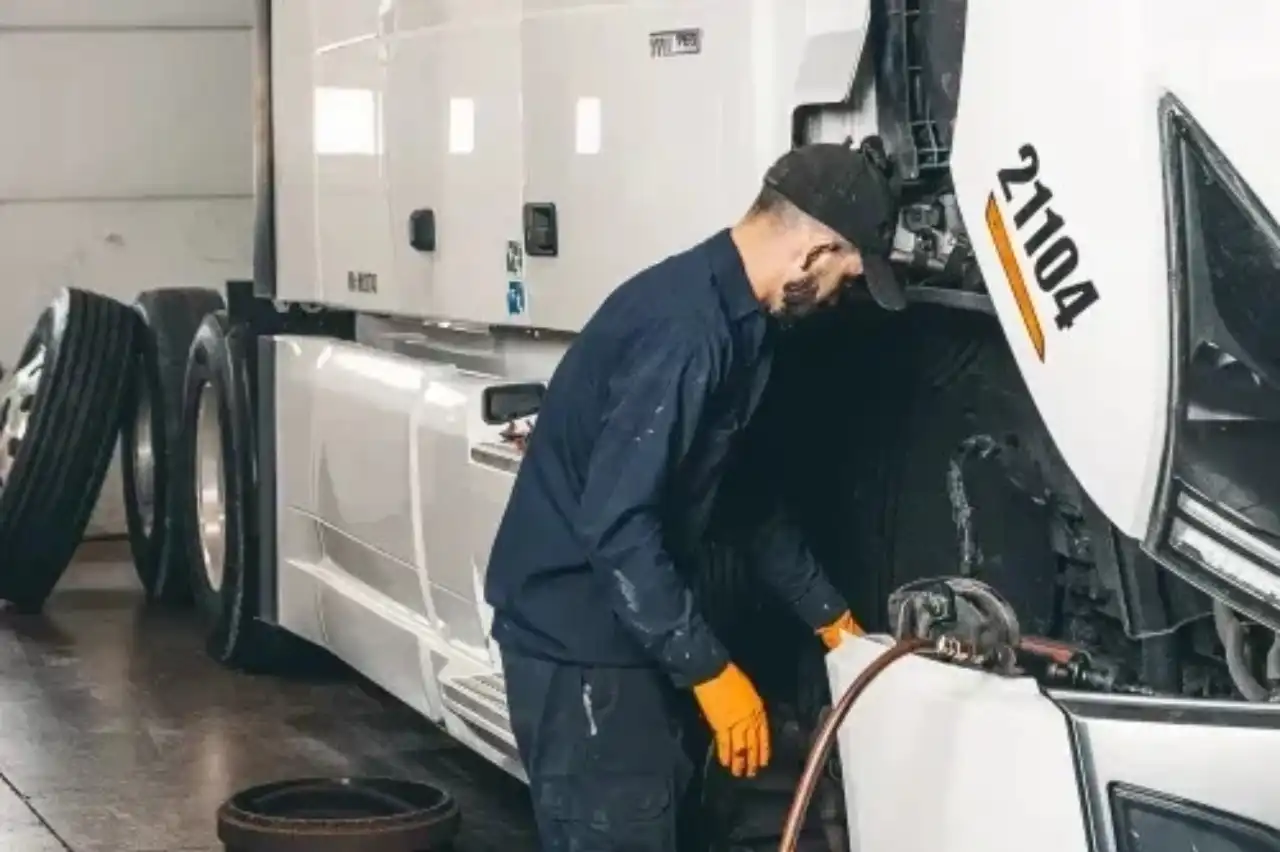
5 Most Common Causes of a Heavy-Duty Truck Breakdown
Avoid costly breakdowns by staying ahead of the top culprits: tire failures, battery issues, overheating, fuel problems, and brake malfunctions. Maintain early, drive far.
Every truck driver's nightmare is a breakdown on the road. Unexpected mechanical failures can lead to costly delays, lost revenue, and expensive emergency repairs no matter where you are. Luckily, most breakdowns can be prevented with regular maintenance and early problem detection.
To help protect your vehicles, schedule, and customer service, we’ve asked our team for advice. Here are the five most common causes of heavy-duty truck breakdowns and how you can avoid them.
1. Tire Failures and Blowouts
Tires are the leading cause of truck breakdowns, especially in hot climates like Texas, where extreme heat causes faster tire wear. Blowouts can occur due to underinflation, overloading, uneven tread wear, or hitting road debris.
How to Prevent Tire Failures:
- Check tire pressure daily and adjust according to manufacturer specifications.
- Inspect for cracks, uneven wear, and tread depth below 4/32" on steer tires and 2/32" on drive/trailer tires.
- Rotate and balance tires to even out tread wear.
- Avoid overloading, which puts extra stress on tires.
Warning Signs:
- Vibrations or pulling to one side
- Cracks or bulges in the tire sidewall
- Low tread depth or uneven wear patterns
Ignoring minor tire issues can quickly lead to a catastrophic blowout.
2. Battery and Electrical System Failures
A failing battery or alternator can leave you stranded with a dead truck, unable to start or operate critical systems. Extreme heat, poor charging, and corroded connections all contribute to electrical system failures.
How to Prevent Electrical Failures:
- Test batteries regularly and replace them every 3–5 years.
- Keep battery terminals clean and corrosion-free.
- Inspect the alternator and voltage regulator for proper charging.
- Check all wiring and connections for wear or loose fittings.
Warning Signs:
- Dim headlights or flickering dashboard lights
- Slow engine cranking or frequent jump-starts
- Battery warning light on the dash
Proactive electrical maintenance helps avoid unexpected no-start situations.
3. Cooling System and Engine Overheating
Overheating is a major issue in Texas, where high temperatures put extra strain on cooling systems. A failure in the radiator, water pump, coolant hoses, or thermostat can quickly lead to engine damage and costly downtime.
How to Prevent Overheating:
- Check coolant levels daily and ensure a 50/50 coolant-water mix.
- Inspect radiator hoses for cracks or leaks.
- Ensure the fan clutch and water pump are working correctly.
- Keep the radiator and intercooler clean to allow proper airflow.
Warning Signs:
- Rising engine temperature gauge
- Coolant leaks or puddles under the truck
- Steam coming from the engine bay
Ignoring overheating issues can lead to blown head gaskets or complete engine failure.
4. Fuel System Issues
Problems with the fuel system can cause loss of power, poor fuel efficiency, or engine stalling. Dirty fuel filters, failing injectors, or fuel contamination can all contribute to a breakdown.
How to Prevent Fuel System Failures:
- Replace fuel filters every 15,000–25,000 miles.
- Use high-quality diesel fuel and drain water separators regularly.
- Inspect fuel injectors for leaks or carbon buildup.
- Monitor fuel economy—a sudden drop may indicate an issue.
Warning Signs:
- Rough idling or loss of power
- Excessive black smoke from the exhaust
- Hesitation or surging when accelerating
Routine fuel system maintenance prevents clogs and injector failures.
5. Brake System Failures
A failure in the air brake system is dangerous and can result in a DOT violation or an out-of-service order. Worn brake components, air leaks, or low air pressure can lead to brake fade or complete failure.
How to Prevent Brake Issues:
- Drain air tanks daily to remove moisture and prevent freezing or corrosion.
- Inspect brake drums, linings, and slack adjusters for wear.
- Check for air leaks in brake lines or chambers.
- Ensure air compressors and air dryers are functioning properly.
Warning Signs:
- Soft or delayed brake response
- Air pressure warning light on the dash
- Hissing sounds indicating air leaks
Regular brake inspections can prevent dangerous situations on the road.
What Happens if I Break Down?
Sometimes, despite your best efforts, your truck will break down anyway. But there’s no need to panic, many heavy-duty repair shops near you will have a dedicated roadside service. They will dispatch a team directly to your location and help you with a range of problems, which will often include:
- Tire changes
- Simple mechanical fixes
- Jump starts
- Battery replacements
- Fuel delivery
- Lockout services
Final Thoughts
Breakdowns don’t just cost money—they also put drivers at risk and cause missed deliveries. By staying ahead of tire wear, electrical issues, cooling system problems, fuel system failures, and brake malfunctions, you can reduce downtime and keep your fleet on the road.
Contact Us
DLS Fleet Services provide Rosenberg, Sugar Land, & the Houston area with professional commercial truck repair services, both in-shop & via mobile service. Contact us today for more information and to schedule service.


